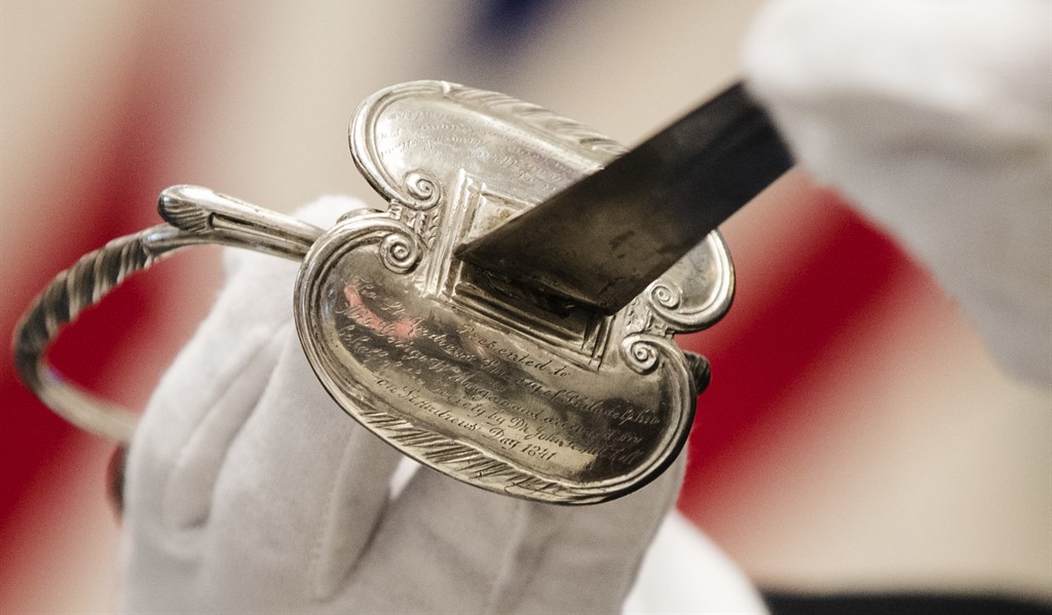Eugene Volokh is tackling a less common Second Amendment argument this week. It stems from a recent decision made by the New Jersey state supreme court involving a resident who was convicted of Unlawful Possession of a Weapon. The “crime” in question was the fact that there was a dispute going on with a neighbor in his apartment complex and when he came pounding on the door, the defendant answered the door with a machete in his hand. He may or may not have pointed it at the unruly neighbor (stories conflict on that point) but he definitely didn’t injure or even attack the person. The state supreme court overturned the conviction and sent the case back for a new trial with different instructions from the judge because the defendant’s rights had been violated.
This leads Volokh to answer another question which he apparently gets fairly often from people who don’t follow the subject closely. Are swords, knifes, machetes and other blade weapons covered by the Second Amendment? We spend so much of our time talking about guns that this area of hardware doesn’t come up very often. His conclusions: (The Volokh Conspiracy, Washington Post)
This should be obvious, I think: The Second Amendment protects “arms,” and the D.C. v. Heller opinion discusses bows and knives as examples of such arms; opinions in the 1800s and 1900s dealing with state constitutional rights to bear arms also mention bladed weapons; and post-Heller opinions, such as from courts in Connecticut, Michigan, and Wisconsin agree. But some have disagreed — the Massachusetts government in the Caetano stun gun case before the Massachusetts high court, for instance, argued that Heller was limited to firearms. The New Jersey decision should be a helpful precedent, then, for other non-gun cases (though of course it doesn’t dispose of the question of exactly what weapons are protected, and where they can be possessed).
The Constitution Society has a handy document you might want to bookmark which covers this, as well as many other questions on related topics. In it, they go into a bit more detail about precisely what the Founders intended and what classes of weapons should be covered. (Emphasis added)
The U.S. Constitution does not adequately define “arms”. When it was adopted, “arms” included muzzle-loaded muskets and pistols, swords, knives, bows with arrows, and spears. However, a common- law definition would be “light infantry weapons which can be carried and used, together with ammunition, by a single militiaman, functionally equivalent to those commonly used by infantrymen in land warfare.” That certainly includes modern rifles and handguns, full-auto machine guns and shotguns, grenade and grenade launchers, flares, smoke, tear gas, incendiary rounds, and anti-tank weapons, but not heavy artillery, rockets, or bombs, or lethal chemical, biological or nuclear weapons. Somewhere in between we need to draw the line.
Personally, they go a bit further over the gray line that “must be drawn” between personal weaponry and group combat weapons for my taste (grenade launchers and anti-tank missiles seem a bit heavy handed) but that’s mostly about right I think. Keep in mind that not everyone could afford a firearm at the time of the nation’s founding and many may have been making do with a bow, a knife or even a farm implement. I’m not sure how common swords were for the layman at the time (good ones were also historically quite expensive) but that would have to fall into the same class.
It’s also commonly noted in literature of the time that people signing up for militia duty would need to be provided with a rifle if they couldn’t afford their own. This, by the way, is where we get the term “well regulated” because regulated in that context meant properly supplied. But in any event, Volokh has some good information in both of the articles linked above which I thought you might find useful. And since we’ve recently seen them used by terrorists, might the Second Amendment also cover hammers if you were holding one when you answered the door? Since you can clearly kill someone with a well placed hammer blow I’d have to say yes. Same for baseball bats.








Join the conversation as a VIP Member